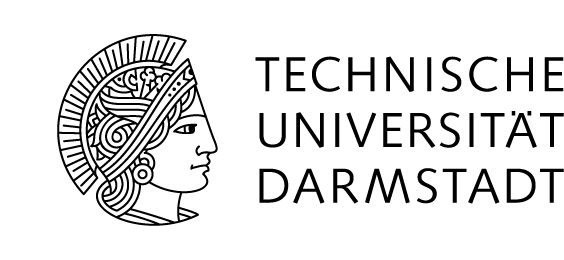Call for Participation
Last Minute Poster Submission
If you want to present a poster at CASTrm, you can directly register for CASTrm at goto.castrm.org and check the poster submission field.
Register for CASTrm here: goto.castrm.org
Submit your abstract here: cfp.cast.informatik.tu-darmstadt.de
Get the paper template here: castrm.org/files/paper_template.zip
Who can participate as an author?
All students currently enroled at a university or university of applied science
What is required to apply?
To apply, please hand in an extended abstract. This is a summary of maximum 2 pages which describe your research topics.
- Your topic can be part of an existing bachelor/master thesis, the result of a lab or seminar or an independent work.
- All abstracts must be in English or German .
- All abstracts require literature. Your citations does not count to your page limit.
When applying, you can choose what form your contribution to the conference will take. For the application, the final documents do not need to be handed in, an extended abstract is enough. The following types of contributions will be possible:
- Papers: A paper is a 6-8 page document which describes a scientific topic and some form of contribution to the research community. Applicants whose papers are accepted will have the chance to present their work during the conference to a live audience. Authors can chose to publish their accepted paper in the conference proceedings.
- Demo Papers: A demo paper is 4 - 6 pages long and often describes a tool or framework. Applicants with a demo paper will have the chance to present their tools during the conference. In addition, they can chose to publish their accepted paper in the conference proceedings.
- Posters: A poster presents scientific research on an A1 poster. Posters will be presented in a poster session during which multiple authors will present their posters to a larger audience. The posters themselves will be printed on site, so you do not have to print yours beforehand.
- Workshops: A workshop is an event where practical skills and techniques are presented. If you choose to hold a workshop, you can present your topic to a group of participants in a hands-on session which could include life-coding/hacking etc.
For your extended abstract, please use the conference LaTeX template stencil (available soon). If you encounter any problems using the LaTeX template, please contact the program chair support [at] castrm.org. We will try to find a solution to your problem as soon as possible.
The extended abstract must not contain any personal information which might make it possible to identify the author. This includes, but is not limited to: names, email addresses, etc. This is important for a fair and anonymous review process.
Applications must be assigned to one or more conference tracks. The following topics should be seen as examples and not a full enumeration of possible topics. If you are unsure which track fits your topic best, please contact the programme committee support [at] castrm.org.
- IT and society
- Possible topics include: social effects of information technology, ethical aspects, (virtual) communities, dual use problem, digital education
- Humans and Computers
- Possible topics include: image recognition, computer graphics, human computer interfaces, smart devices, virtual and augmented realitiy
- Security and correctness
- Possible topics include: cryptographie, usable security, code analysis, anonymity, verification
- Intelligent systems
- Possible topics include: machine learning, data science, learning robots, cognitive science, big data analysis
- Computer Science ++
- This includes all topics which are often summarized under computer science related fields (i.e. medical computing, economics and computer science), and all topics which are not adequatly covered by the tracks provided above (i.e. hardware etc.)
How do you apply:
- The abstract must be provided as a PDF using the LaTeX template.
- The system for handing in your submission will be available soon
- Our data privacy regulations can be found here: Datenschutz-Informationen (in german)
What does an extended abstract include:
The extended abstract should be at most two pages long (without citations and references) and should include the following information:
- Topic decription: What problem/question is addressed by the work and what is the general drive of the work?
- Motivation: Why is the topic relevant for scientific enquiry?
- Approach: What techniques/tools/mathematics are used?
- Evaluation: How will the results be evaluated?
The extended abstract does not have to completely answer each of these questions, but should provide a clear and concise overview of the work. The full work will only be required a short time before the conference in the form of your final submission.
When evaluating your submission we will focus on the content of your work and not on perfect orthography or presentation.
Code of Conduct
We expect all applications and proposals to follow our code of conduct.
Summary of important dates and deadlines:
(all dates are seen as UTC +2 [Europe/Berlin] 11:59 pm)
- Deadline for the extended abstract: 31. October 2018
- 2nd Round for CfP: Deadline for the extended abstract: 18. November 2018
- Accept/reject: end of December 2018
- Deadline to register as an author: 15. January 2019
- Deadline for the final submission: end of February 2019
- Publication of the conference schedule: beginning of March 2019
- Date of the CASTrm: 27.03. - 29.03.2019
- Publication of the proceedings: end of April 2019

